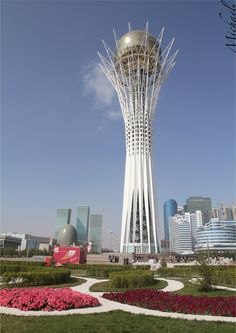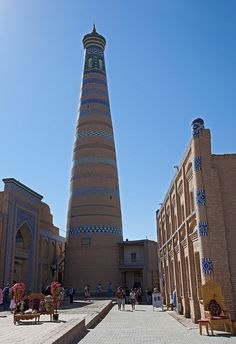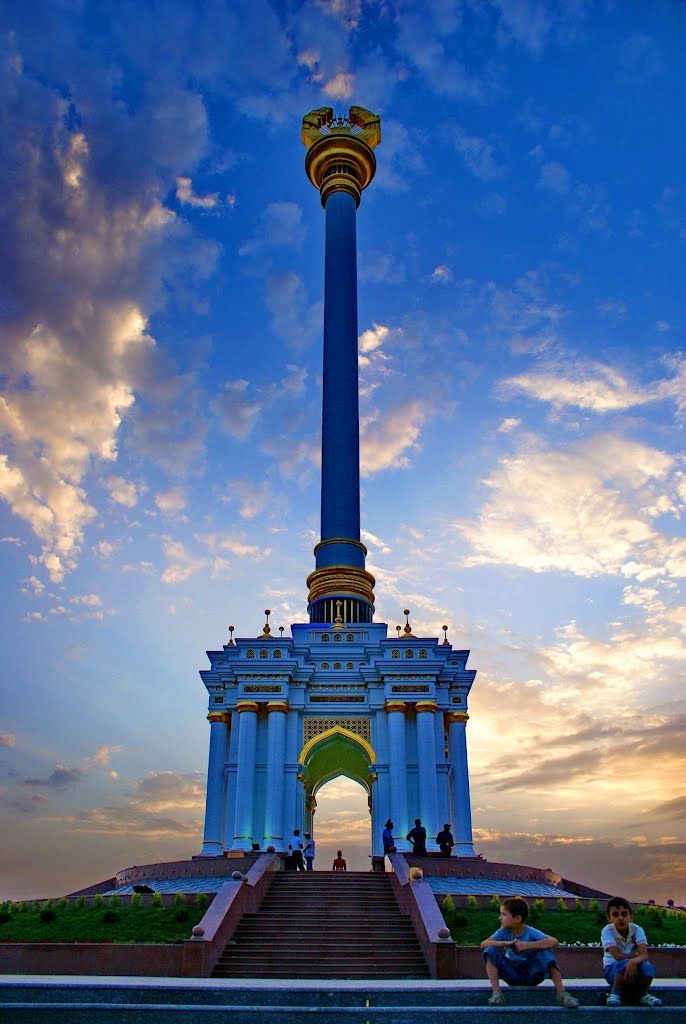The presidential succession in Uzbekistan following the death of Islam Karimov in September 2016 has rejuvenated discussion about the nature and future of Central Asia’s political regimes. Uzbekistan’s new president, Shavkat Mirziyoyev, has forged new relations with neighboring Tajikistan and Kyrgyzstan and implemented some noticeable (though minor) changes in economic policy. In January 2017, Kazakhstan President Nursultan Nazarbayev suddenly announced he would devolve some of his powers to parliament and published a draft of proposed constitutional reforms. How do we discern what are changes of façade in Central Asia and what are deep, structural, long-term evolutions? Six PONARS Eurasia members comment on the effects of leadership transitions in the region.
Maria Omelicheva, University of Kansas
 Uzbekistan’s power transition ended the 27-year rule of Karimov and his clan. Whether by coincidence or not, some changes took place almost immediately in the region. Soon after the December 2016 presidential elections in Uzbekistan, Kyrgyzstan rushed through a package of 26 constitutional amendments that shifted authority from the president and parliament to the prime minister (a ban was also placed on same-sex marriage). Around that same time, Kazakhstan held the first meeting of a working group established by Nazarbayev on the issue of power redistribution between government branches. This past January, Tajikistan President Emomali Rahmon dismissed the mayor of Dushanbe who had served for 20 years and had been known as the No. 2 person in the country. Do these changes herald any significant institutional shifts in states that have long been resilient to meaningful democratization? I would say that the changes (“reforms”) are like new wine in old bottles. They are occurring within robust authoritarian structures and do not affect society-at-large.
Uzbekistan’s power transition ended the 27-year rule of Karimov and his clan. Whether by coincidence or not, some changes took place almost immediately in the region. Soon after the December 2016 presidential elections in Uzbekistan, Kyrgyzstan rushed through a package of 26 constitutional amendments that shifted authority from the president and parliament to the prime minister (a ban was also placed on same-sex marriage). Around that same time, Kazakhstan held the first meeting of a working group established by Nazarbayev on the issue of power redistribution between government branches. This past January, Tajikistan President Emomali Rahmon dismissed the mayor of Dushanbe who had served for 20 years and had been known as the No. 2 person in the country. Do these changes herald any significant institutional shifts in states that have long been resilient to meaningful democratization? I would say that the changes (“reforms”) are like new wine in old bottles. They are occurring within robust authoritarian structures and do not affect society-at-large.
Uzbekistan’s rapprochement with Tajikistan is more about Mirziyoyev’s personal preferences than about a momentous foreign policy shift. Contrary to Karimov, Mirziyoyev carries no personal animosity toward Rahmon. Mirziyoyev’s economic policy evinces greater pragmatism but it is still consistent with the “development model” instituted by Karimov. Geoeconomic circumstances work in favor of Uzbekistan, as it seeks to displace its northern neighbor Kazakhstan as the regional economic leader. Kazakhstan has been hit by plummeting global oil prices and the trickle-down impact of the Russian economic recession. It has had no choice but to introduce a veneer of reforms. While the details of the proposed redistribution of power in are still in the works, they certainly exclude the abolition of Nur Otan’s hegemony and the president’s prerogative to appoint provincial governors. These are the two important pillars of vertical power in the country.
It is hard to make sense of Kyrgyzstan. It embarked on hasty political reforms while straddling a system marked by renewed political fragmentation and democratic sliding. One should remember that the Central Asian states are authoritarian by design, not default. Their systems should be viewed in their own right and not as opposites of a democracy.
Scott Radnitz, University of Washington
 Central Asia-watchers have been monitoring the region for significant change for decades. It appears that change is afoot in the two most important states in the region: Uzbekistan and Kazakhstan. But if Uzbekistan's transition is indicative, replacing the man at the top will not necessarily mean meaningful improvements in the way the country is run. It is notable that Uzbekistan's new president, Mirziyoyev, has struck a different tone than his predecessor, making a show of appearing more responsive, energetic, and closer to the people. But one lesson of 25 years of post-Soviet political development is that regimes are not just the ruler. They are systems — powerful people, networks, and informal rules — that treat the ruling regime favorably. Changing this won’t come easily. Even if Mirziyoyev is a democrat at heart (his background makes this unlikely), he would have to play by authoritarian rules in order to survive at the top. Likewise, if Kazakhstan’s Nazarbayev steps down, it will help avert the uncertainty that would accompany the absence of a succession plan, but any successor who can manage the complex and diverse interests that undergird the country’s political stability will have to be a savvy actor with deep knowledge of the system. Thus, he or she will most likely be a creature of the system. What we can expect in the near term, therefore, is the second-best outcome: no democracy, but no political crisis either.
Central Asia-watchers have been monitoring the region for significant change for decades. It appears that change is afoot in the two most important states in the region: Uzbekistan and Kazakhstan. But if Uzbekistan's transition is indicative, replacing the man at the top will not necessarily mean meaningful improvements in the way the country is run. It is notable that Uzbekistan's new president, Mirziyoyev, has struck a different tone than his predecessor, making a show of appearing more responsive, energetic, and closer to the people. But one lesson of 25 years of post-Soviet political development is that regimes are not just the ruler. They are systems — powerful people, networks, and informal rules — that treat the ruling regime favorably. Changing this won’t come easily. Even if Mirziyoyev is a democrat at heart (his background makes this unlikely), he would have to play by authoritarian rules in order to survive at the top. Likewise, if Kazakhstan’s Nazarbayev steps down, it will help avert the uncertainty that would accompany the absence of a succession plan, but any successor who can manage the complex and diverse interests that undergird the country’s political stability will have to be a savvy actor with deep knowledge of the system. Thus, he or she will most likely be a creature of the system. What we can expect in the near term, therefore, is the second-best outcome: no democracy, but no political crisis either.
Shairbek Juraev, University of St Andrews, Scotland

The presidential succession in Uzbekistan removed one puzzling question about Central Asian politics. The transition went smoothly, at least on the surface, and now we have a change of person but not of regime. There were hopes for democratization, fears of destabilization, and parallels drawn with the Arab Spring. However, the nervous anticipation about leadership succession in Central Asia now appears to be mostly hyperbole. Two points can be made in the context of the recent leadership change in Uzbekistan and the power shuffling in Kazakhstan.
First, the power successions we see today will likely bring continuity rather than change. When you look at all of the political transitions in Central Asia, new political forces do not hold views that are deeply different from the views of the incumbents — in any matter, state, society, or politics (a lone exception may be the coming to power of Askar Akayev in 1990). One should discount analyses making distinctions between Soviet and post-Soviet elites. Although the younger generation is less exposed to Soviet education and training, they do not define the core of politics and policymaking. And those that are more closely involved were brought up within the established “rules of the game.” Corruption, the selective use of justice, and dominance of the president over all government branches form the common denominators of Central Asian political systems. These may have roots in the Soviet system, but are, by now, well internalized and adjusted to modern realities. Younger political elites have worked hard cementing the systems, as is the case with new Uzbek President Mirziyoyev. Any changes, therefore, should not be taken for anything more than matters of style. This applies to hopes that there might be an Uzbekistan “opening” and to promises of power devolution in Kazakhstan. Regarding Kyrgyzstan, despite the fanfare about having a parliamentary system and multiple parties sharing seats, the government is not much better or stronger than the (better) years of former presidents Askar Akayev or Kurmanbek Bakiyev. Even though it has softer state institutions and greater power contestations, a fact which does distinguish it from neighboring political systems, Kyrgyzstan’s political roots lie anywhere but with the constitutional strengthening of the legislative branch.
Second, if change comes to Central Asian political regimes, it will most likely be in the form of growing nationalism. Currently, the ruling elites are essentially detached from the population. Elections in most of Central Asia have little meaning. The stability of state-society relations is mostly due to relatively stable economics, strict state control over the media, and preemptive measures against alternative political forces (Turkmenistan and Uzbekistan score higher than the rest when it comes to these measures). A sudden economic or political change may prompt the elites to seek more genuine connections with the masses. If this happens, populist nationalism is more likely to come to the fore rather than ideological alternatives. It would be easier for the elites to promote and manipulate populism and nationalism over other values (such as liberal democracy). If there is any growth of political contestation — still a hypothetical in most of Central Asia — this may serve to consolidate those seeking greater democratization. At the present rate, it will take time for the “contents of politics” to catch up with the “process of politics.”
– – – – –
See Part 2 with commentary by Nargis Kassenova, Edward Schatz, and Eric McGlinchey.











